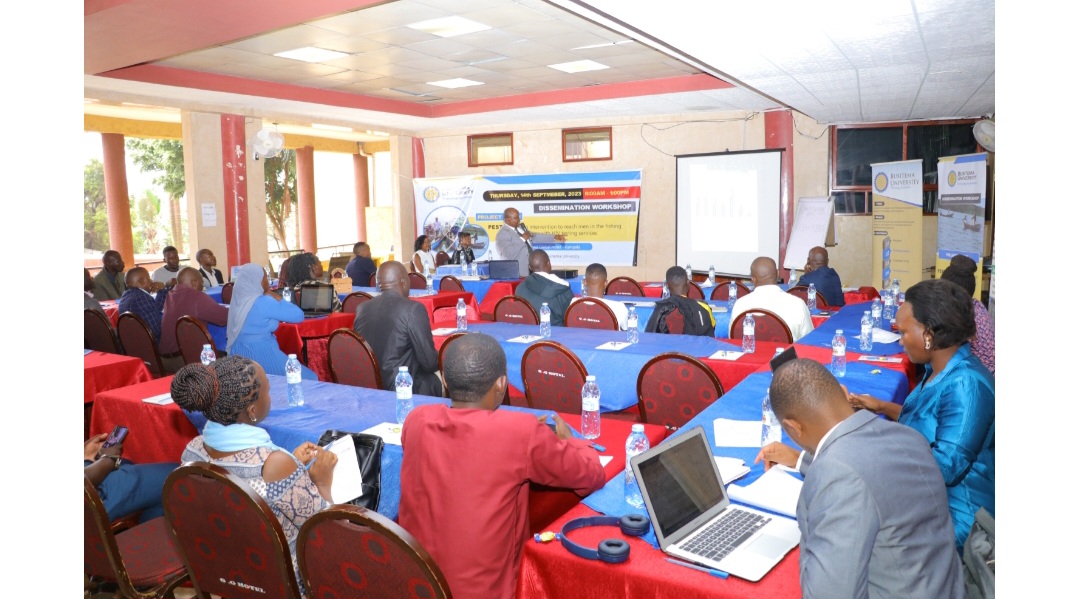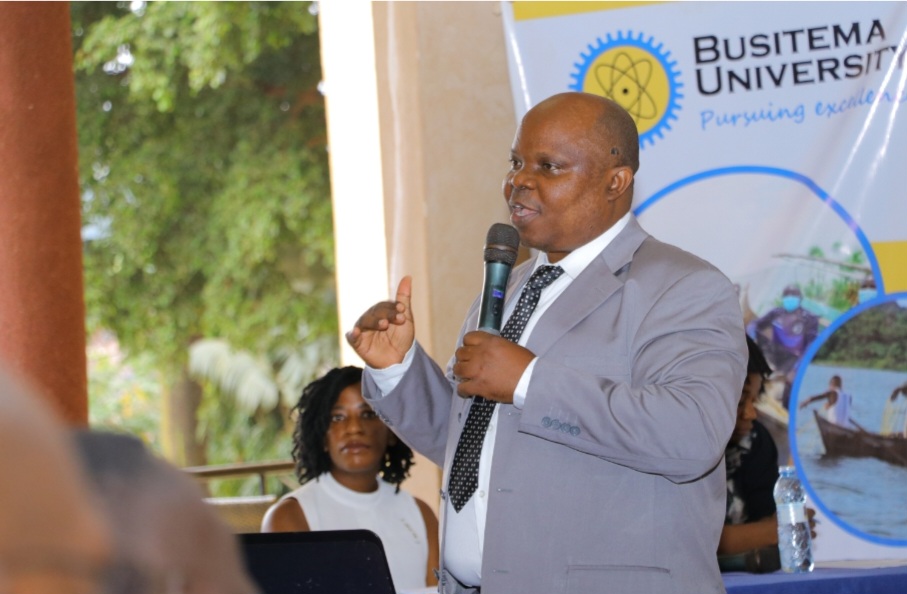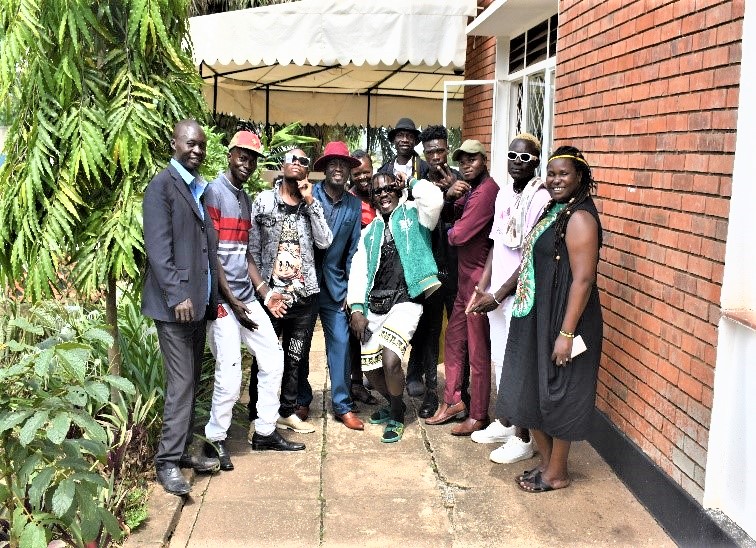Findings from a study conducted among men in the fishing communities of Kalangala and Buvuma show that since men don’t usually go to health facilities to receive HIV services, use of men to reach fellow men can be the game-changer needed to improve HIV services uptake among men in these settings. The study, codenamed, “peer-led HIV self-testing intervention for men” (PEST4MEN), was implemented by a team of researchers from Busitema University Faculty of Health Sciences led by Assoc. Prof. Joseph K.B. Matovu.
The ‘PEST4MEN’ study was aimed to assess the feasibility and acceptability of a peer-led HIV self-testing intervention on HIV testing uptake among men in fishing communities. Researchers also sought to assess the preliminary effects of peer-led HIV self-testing on linkage to and retention in HIV care among HIV-positive men.
“We also wanted to assess the acceptability of secondary HIV self-test kits distribution from men to other people in their networks,” Assoc. Prof. Joseph Matovu noted, during a research dissemination on Thursday. He indicated that secondary distribution of HIV self-test kits occurs when the primary recipient of the kit gives it to someone else. The distribution process is ‘secondary’ because the second recipient obtains the kit from someone (the primary recipient) who received it directly from the primary source.
It should be noted that the fishing communities in Uganda have a higher HIV prevalence than the mainland communities and have been dubbed as net sinks for HIV rather than sources of new HIV infections. Due to their higher risk of acquiring HIV, men working in fishing communities were targeted.
Assoc. Prof. Joseph Matovu revealed that feasibility was measured as a function of the peer leaders’ ability to successfully distribute HIV test kits to members of their social networks.
“The intervention was deemed feasible if peer leaders distributed up to 70% of the kits they received and if more than 80% of those who received the kits (dubbed “social network members”) returned unused kits to the study team,” he explained.
In Kalangala district, Mwena fishing community with a population of 1,200 with close to 58% of the population being men, aged 15 years and above was examined, and Kasali-B, fish landing site, Buvuma district was involved, with a population of about 1000 people (60% male, aged 15 years and above).
Peer leaders were given two kits for each interviewed member of the social network.
Findings indicate that of 800 kits given to peer-leaders, they (peer-leaders) gave out 782 kits (97.7%) to their social network members. Meanwhile, 99.1% (352) of the men who received the kits used them to self-test for HIV, the indicating that peer-led HIV self-testing was not only feasible but also highly acceptable considering that the HIV testing targets noted above.
Of those who received the kits, 174 (100%) in Mwena (Kalangala) and 178 (98.3%) in Kasaali-B (Buvuma) used them, and the number of people who used the kits did not differ by age-group, education level, occupation, or ever-testing status.
Men in fishing communities’ traverse different islands looking for high fish stock in the lake. Therefore, these people are likely to miss out on conventional HIV testing. The National HIV prevalence among adults (15 to 49 years) is 5.5% according to Uganda Population HIV Impact Assessment (UPHIA, 2020). The study found that 51 men in both districts had HIV, representing an HIV prevalence of 14.5%. HIV prevalence was highest in Kalangala at 19.5% in Mwena, Kalangala and 9.5% in Buvuma, both of which are way above the National HIV prevalence. According to Assoc. Prof Matovu, 31% of the men who were found to have HIV were first-time HIV-positive testers. These men would not have known that they have HIV if they did not join the project. Luckily, of the new men found with HIV, 70% started HIV treatment.

Participants attending the dissemination workshop at Grand Global Hotel on Thursday
Upon asking the study group whether they would prefer to confirm their HIV self-test results, Aisha Namwama Twahiri, a Master of Public Health (MPH) student at the University, noted that the majority of the study population accepted.
“However, they stressed that they would prefer being reminded by peer leaders using phone calls to go for HIV confirmatory testing. They also preferred starting their ARV therapy there and then after being confirmed, at a government-owned health facility,” she revealed.
Adding, “If we are to reach men in fishing communities, we should use peer-led distribution of HIV self-kits. These people are supposed to be fellow men and they should distribute the kits during the working days of the week,” recommended.
Meanwhile, Assoc. Prof. David Mukunya, Head of Department, Community and Public Health at Busitema University commended the researchers and peers for the efforts towards Uganda’s HIV response, and urged them to disseminate the findings widely.
Do you have a story in your community or an opinion to share with us: Email us at editorial@watchdoguganda.com









